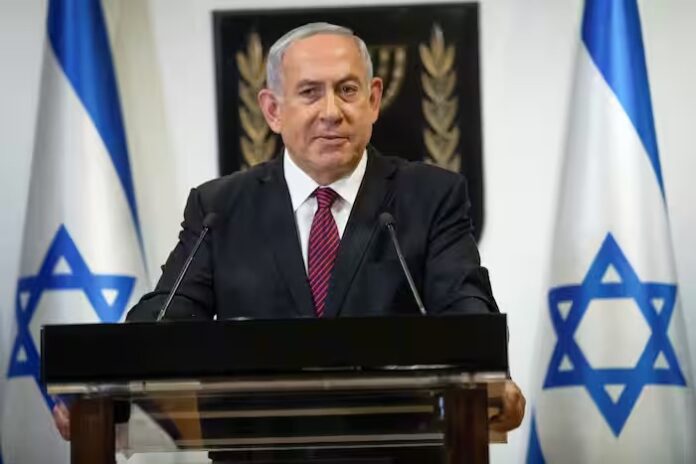In a bold and unprecedented move, Israeli Prime Minister Benjamin Netanyahu has officially acknowledged Israel’s role in the controversial killing of Saleh al-Arouri, Hamas’ deputy chairman, in a cross-border airstrike in Lebanon.
The admission, which comes after weeks of speculation and condemnation from regional actors, marks a significant escalation in Israel’s ongoing conflict with the militant group Hamas.
Netanyahu’s confirmation, delivered via a video statement, underscores Israel’s determination to confront and neutralize key figures within Hamas’ leadership hierarchy.
Referring to Arouri as the “number four in Hamas,” Netanyahu ominously hinted at further targeted strikes, declaring, “Three, two, and one are on the way (to be killed). They are all dead men, we will reach them all.”
This unequivocal assertion signals Israel’s unwavering commitment to pursuing what Netanyahu described as “total victory” over Hamas.
The revelation of Israel’s involvement in Arouri’s assassination has ignited a firestorm of criticism from Lebanon and other regional countries.
Despite the backlash, Netanyahu remained steadfast in his resolve, emphasizing Israel’s strategic imperative to enhance its security and combat threats posed by Hamas.
Coinciding with Netanyahu’s statement, reports emerged from Israel’s Kan TV news suggesting another airstrike targeted Marwan Issa, Hamas’ deputy military commander in Gaza and the third-ranking member in the Hamas hierarchy.
The strike, reportedly conducted in the Al-Nusseirat refugee camp in central Gaza, resulted in the deaths of five militants and injuries to ten others.
Israel’s unapologetic stance and targeted strikes against Hamas leadership underscore its uncompromising approach to addressing security challenges posed by the militant organization.
By systematically dismantling key figures within Hamas, Israel aims to weaken the group’s operational capabilities and maintain a robust deterrent posture in the face of persistent threats.
The escalating tension between Israel and Hamas has raised concerns about the potential for further violence and retaliation.
With Hamas likely to respond to Israel’s aggressive military actions, the region braces for heightened instability and uncertainty.
Netanyahu’s admission of Israel’s role in Arouri’s assassination marks a significant departure from previous Israeli policies of neither confirming nor denying such operations.
By publicly acknowledging its actions, Israel sends a clear message of deterrence to its adversaries while simultaneously intensifying tensions in the already volatile region.
As the situation continues to evolve, the international community closely monitors developments, hoping to mitigate the risk of further escalation and foster efforts towards a peaceful resolution to the longstanding conflict between Israel and Hamas.
This article was created using automation technology and was thoroughly edited and fact-checked by one of our editorial staff members

